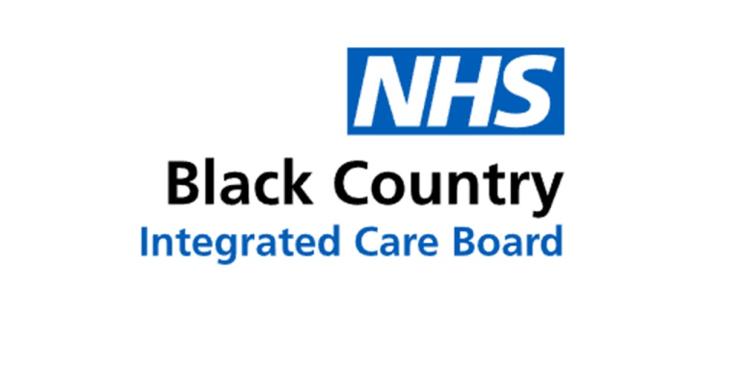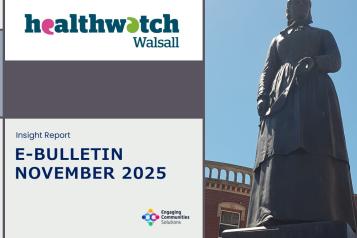Nurse chiefs: Protect your children against measles
Nurse leaders in Birmingham, Solihull and the Black Country are urging parents to make sure children are up to date with their measles, mumps and rubella (MMR) vaccine, amidst increasing cases in the area.
Measles is a highly infectious disease that can lead to serious complications, such as severe lung infections and inflammation of the brain. It also damages and suppresses the immune system, leaving children more vulnerable to catching other illnesses.
Cases have risen in recent weeks in Birmingham, prompting calls for parents to ensure their children are fully vaccinated and encouraging anyone who wasn’t vaccinated as a child to speak to their GP about a catch-up immunisation if needed.The virus can spread quickly in communities, particularly in settings such as schools and nurseries, if children have not received both doses of the MMR vaccine.
Symptoms of measles include:
• high temperature
• runny or blocked nose
• sneezing
• cough
• red, sore, watery eyes
• rash, which usually appears a few days after cold-like symptoms (sometimes it starts around the ears before spreading to the rest of the body).
All children are invited for their first MMR vaccine on the NHS when they turn one. The second dose is given when they reach three years and four months of age. Having two doses of the vaccine provides the best protection against MMR.
Adults and older children can also be vaccinated at any age if they have not been fully vaccinated before and are being encouraged to come forward if they haven’t had two doses.
Sally Roberts, Chief Nursing Officer for the NHS Black Country Integrated Care Board (ICB), said: “The MMR vaccine is a safe and effective combined vaccine, which protects against three serious illnesses - measles, mumps, and rubella.
“Measles is a highly infectious virus which spreads very easily, especially in schools. While most people recover completely within a couple of weeks, measles can cause very serious illness for those in certain at-risk groups including babies and small children, pregnant women and those with weakened immune systems.
“There’s no specific medical treatment for measles, so it’s important to get vaccinated as it’s the best protection against becoming seriously unwell. If your child has not yet had the MMR vaccine or hasn’t had both doses, you should call your GP practice and book an appointment as soon as possible.
“Anyone with symptoms is advised to phone their GP or NHS 111 for advice, rather than visiting their GP surgery or A&E, to prevent the illness spreading further.”
Helen Kelly, Chief Nursing Officer for NHS Birmingham and Solihull Integrated Care Board said: “We have seen a small rise in measles cases in Birmingham, but it’s important to remember that even a few cases can lead to rapid spread within our communities. There are lots of myths and misconceptions about the MMR
vaccination, but we know it is safe, effective and remains our best protection against a virus which can be life-threatening in the most serious cases.
“The MMR vaccination is safe for all faiths and cultures, and a pork-free version is available for those who avoid pork products.
“If you’re unsure, I strongly encourage parents to speak to their GP, health visitor or nurse to get accurate information and avoid the risks of misinformation which spreads easily online.”
Parents who are unsure if their child is up to date with all their routine vaccinations should check their child’s Red Book (personal child health record), check the NHS app, or contact their GP practice.
Measles is a highly infectious disease that can lead to serious complications, such as severe lung infections and inflammation of the brain. It also damages and suppresses the immune system, leaving children more vulnerable to catching other illnesses.
Cases have risen in recent weeks in Birmingham, prompting calls for parents to ensure their children are fully vaccinated and encouraging anyone who wasn’t vaccinated as a child to speak to their GP about a catch-up immunisation if needed.The virus can spread quickly in communities, particularly in settings such as schools and nurseries, if children have not received both doses of the MMR vaccine.
Symptoms of measles include:
• high temperature
• runny or blocked nose
• sneezing
• cough
• red, sore, watery eyes
• rash, which usually appears a few days after cold-like symptoms (sometimes it starts around the ears before spreading to the rest of the body).
All children are invited for their first MMR vaccine on the NHS when they turn one. The second dose is given when they reach three years and four months of age. Having two doses of the vaccine provides the best protection against MMR.
Adults and older children can also be vaccinated at any age if they have not been fully vaccinated before and are being encouraged to come forward if they haven’t had two doses.
Sally Roberts, Chief Nursing Officer for the NHS Black Country Integrated Care Board (ICB), said: “The MMR vaccine is a safe and effective combined vaccine, which protects against three serious illnesses - measles, mumps, and rubella.
“Measles is a highly infectious virus which spreads very easily, especially in schools. While most people recover completely within a couple of weeks, measles can cause very serious illness for those in certain at-risk groups including babies and small children, pregnant women and those with weakened immune systems.
“There’s no specific medical treatment for measles, so it’s important to get vaccinated as it’s the best protection against becoming seriously unwell. If your child has not yet had the MMR vaccine or hasn’t had both doses, you should call your GP practice and book an appointment as soon as possible.
“Anyone with symptoms is advised to phone their GP or NHS 111 for advice, rather than visiting their GP surgery or A&E, to prevent the illness spreading further.”
Helen Kelly, Chief Nursing Officer for NHS Birmingham and Solihull Integrated Care Board said: “We have seen a small rise in measles cases in Birmingham, but it’s important to remember that even a few cases can lead to rapid spread within our communities. There are lots of myths and misconceptions about the MMR
vaccination, but we know it is safe, effective and remains our best protection against a virus which can be life-threatening in the most serious cases.
“The MMR vaccination is safe for all faiths and cultures, and a pork-free version is available for those who avoid pork products.
“If you’re unsure, I strongly encourage parents to speak to their GP, health visitor or nurse to get accurate information and avoid the risks of misinformation which spreads easily online.”
Parents who are unsure if their child is up to date with all their routine vaccinations should check their child’s Red Book (personal child health record), check the NHS app, or contact their GP practice.



